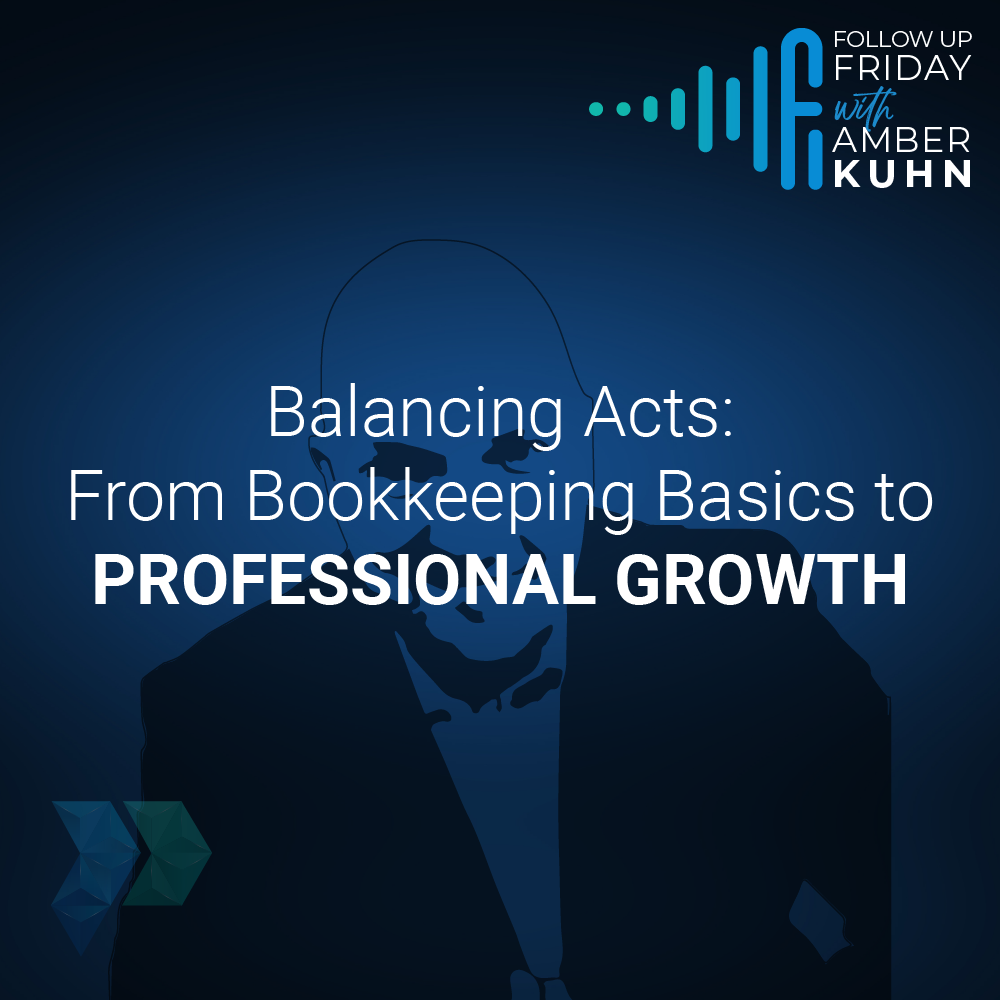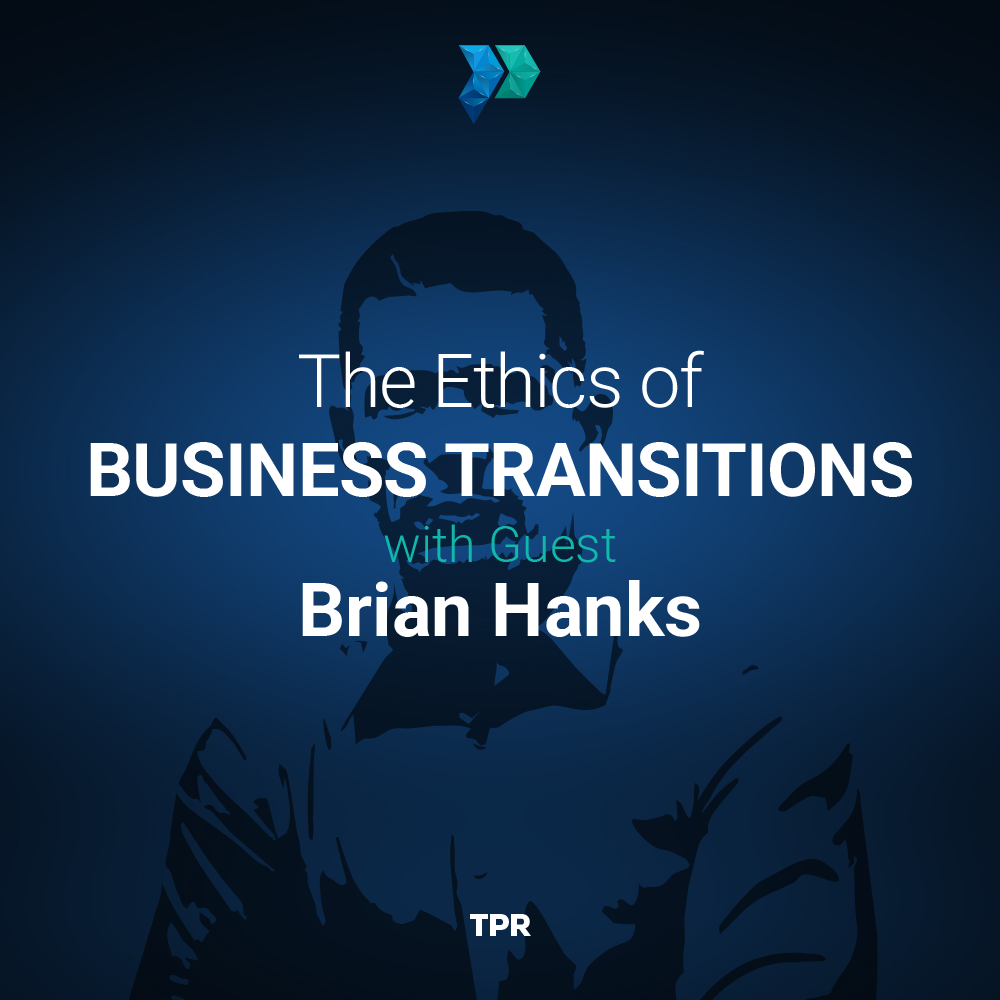What You'll Learn In Today's Episode:
- Hiring a bookkeeper is essential for small business owners to have clean and accurate books..
- Bookkeeping is not just about taxes; it also helps in managing and running the business effectively.
- Surge scheduling can help advisors balance their professional development and family commitments.
- Communication and support from family members are important in managing family responsibilities while attending conferences.
Amber is recapping this week’s episode highlights. On Monday, Matt dove into the world of bookkeeping with Duff Tucker from Belay, uncovering the common pitfalls small business owners face. They emphasized the importance of professional bookkeeping services, not just for taxes, but for making informed business decisions and preparing for future sales. Duff shared valuable tips on when to bring in a bookkeeper and how to establish a smooth working relationship.
Thursday’s episode featured Jamie tackling the age-old struggle of balancing professional development with family life. She shared her savvy strategies for mapping out the year, including surge scheduling and strategic conference attendance. The key takeaway? Time is precious, so plan wisely and communicate openly with your loved ones to achieve both personal and professional growth.
Resources In Today's Episode:
Read the Transcript Below:
Amber Kuhn
Hello TPR nation. This is Amber Kuhn with your Follow up Friday, where I’ll be recapping this week’s episode highlights and action items. On Monday, Matt was joined by Duff Tucker, BELAY’s Account Services Manager who helps companies get bookkeeping services in place. Matt and Duff kicked off by talking about the biggest mistake that small business owners make when it comes to bookkeeping, which, according to Duff, is that they think it’s best to manage it themselves. It’s understandable that they need to wear multiple hats, and because it’s so important, they think they need to be involved, but it’s really not the best use of their time. Bringing on someone who is a subject matter expert can give a business owner a clear vision and allow them to make educated business decisions. Matt pointed out that most business owners don’t realize how bad their bookkeeping is until they’re faced with an audit, or they realize there’s fraud going on. And Duff added that a lot of time they run their business off assumptions instead of regularly checking numbers. And with this, if you’re stretched thin, you don’t necessarily have the time to always look at the reporting. So when you have a bookkeeper, they can truly focus their time and energy on identifying things happening in the business and pointing out anything that might seem odd. Duff said, There’s a misconception that you only need good books for tax purposes. But in addition to having everything in order for your taxes, having good books also helps you manage and run your business, and someday, as Matt pointed out, your business will be sold. The longer you’ve had cleaner books, the better that will go. Matt and Duff then talked about having a program like QuickBooks. And if you’re not in a program like that constantly, it’s always evolving, and you won’t be efficient with it. Instead, with having a bookkeeping professional, they’re always in the program so they understand the changes that happen and in terms of safety and protecting clients, Malay sets up their bookkeepers to have view only access for bank accounts and credit card statements, and they recommend using bill.com if the bookkeeper is doing bill payments, they can set the payments up for you, but then you approve the payment. You always want to make sure that there’s a check and balance with this. As far as when you should consider bringing on a bookkeeper. Duff says they typically start working with clients once they’re around the $200,000 revenue range, and it’s during a discovery call that will label determine how many hours you need someone for. Duff said they have a 90 day onboarding process, and they recommend a 30 minute meeting once a week to get started, and then make sure the bookkeeper has access to everything they need and can really take a deep dive into what needs to be done. And in that first month, they’ll get a good understanding of how the books are being managed and what adjustments need to be made. It’s also important to agree on when bills will need to be paid, because with a fractional bookkeeper, you can’t expect a quick response on things, especially if you only have access to them a few hours a month. So having a weekly meeting and setting bill payment days, having the bookkeeper send a recap email each week, and then having an understanding of the best way to communicate will really help that relationship. Let’s get an action item. If you’re attending the RTS Tax Summit next week, be sure to connect with BELAY, who’s one of our event partners, and if you’re interested in a free financial consultation for your books, please visit the link in today’s show notes and mention The Perfect RIA and too often, bookkeeping isn’t at the top of the list of things you need to focus on until there’s something catastrophic happening. Make sure you have clean books and bring someone on to help. On Thursday, Jamie is talking about time, and what that looks like depending on what stage people are in their lives. This episode stemmed from advisors who said they struggle with finding the time to work on their professional development, especially attending conferences, because they’re at the point where they’re also raising kids. But the thing is, there will always be something that tugs and eats away at your time. It’s hard to try to do all the things, so you end up looking for what you can just not commit to in order to make it easier for the person at home. But how do you handle situations when you know it’d be great to attend an in person event, but you have guilt because you’re leaving the thing is that most people have other obligations and responsibilities, so you’re not unique in this situation. Jamie said The difference is that the people who show up know where they want to go and know who they want to become. So you can always say you’ll put things off until later, but realistically, you don’t know what the future holds. And Jamie said what tends to happen is that you look back and see that you had way more time than you thought. So how do advisors still elevate their career without sacrificing their family time and commitments. For Jamie, she has the entire next year mapped out by October, including the following year’s surge schedule. Jamie spent some time talking about surge scheduling and how for Shilanski and Associates, they have two big surges and mini surges. The first big surge is in March and April, and this is where they get strategic about the information they’re getting from their clients. The next big one is in October and November, and for this one, they concentrate on estate planning. For many surges, these happen about one week every month, and part of the reason for these are to help the team so that if a client needs to meet with an advisor outside of the big surge, they have a place they can schedule them. And this is also the time where prospects are seen. Jamie said, once she has her search calendar set up, then she looks at the year to decide which events does she want to attend and what professional development does she want to be a part of? For her, this is about one quarter two of these she wants to be an in person event, and the others will maybe be a course that she’s taking online, but ultimately, four ways that she’s educating and elevating herself, so she’s blocking out the time and planning based on where the conference is going to be from there. She talks with her spouse about family trips. She pointed out that her number one responsibility is to provide for her family so her family trips don’t come before her work schedule. Jamie’s pro tip is that if you’re at a conference, you should stay one more day so you can get all the information out based upon what you’ve just learned, implement those ideas at that time instead of trying to do it later, once you’re back into household obligations, Jamie then shared some tricks and hacks that she’s learned over the years. When you want to attend a conference, but you feel bad because it stresses your spouse, your parents or other people in your life. So if you have a dog, find a doggy daycare. Maybe hire someone to walk them or take them to the vet before your trip. And if you have children, Jamie said to make sure that there’s enough support in different capacities. So look for outside resources, such as a neighbor to help out in the afternoon or part time nanny. Maybe someone in to help clean the house or do your work or laundry, consider grocery or meal delivery and make sure that the house is stocked with food. Think of those things that you do and end up being of the responsibility of the other person while you’re gone, and how can you help mitigate that so the other person will feel supported? Another tip for this is, when you’re doing your yearly name have a conversation with your spouse about what they want to learn and what their goals are. By having these conversations, it allows the other person either to be on board or share their concerns. Jamie wrapped up by saying that you never have more time than you do right now. So get your wall calendar, map out your surge, your conferences, and have conversations with your spouse so you can figure out what needs to happen, so you can continue to learn and grow your nation. Next week is our mastermind TPR live and the RTS Tax Summit. We are set for an incredible week of events, so you’re missing out and you want to be in the know for next year’s event, reach out to us at lifestyle@theperfectria.com. Thank you for joining me, and please share this or any of our episodes with another advisor or team member who you think might benefit from listening, and be sure to subscribe to The Perfect RIA Podcast so you don’t miss an episode until next time. Happy planning.








